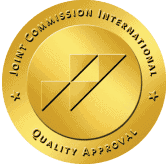You deserve compassionate, evidence-based treatment that addresses both the physical and psychological aspects of cannabis dependence. Professional marijuana addiction treatment centers understand that overcoming cannabis use disorder requires specialized care, comprehensive support, and proven therapeutic approaches. You don’t have to face this challenge alone – effective treatment is available to help you reclaim control of your life.
What are the signs of marijuana addiction?
You may be experiencing marijuana addiction if cannabis use has begun to interfere with your daily life, relationships, or responsibilities. Cannabis use disorder affects approximately 9% of individuals who use marijuana, with significantly higher rates among those who begin using before age 18. Professional treatment centers recognize that marijuana addiction is a legitimate medical condition requiring specialized intervention.
Physical signs you may notice include:
- Tolerance – needing increasing amounts to achieve the same effects
- Withdrawal symptoms when not using, including irritability and anxiety
- Sleep disturbances and insomnia
- Changes in appetite and weight
- Bloodshot eyes and persistent cough
- Decreased coordination and slower reaction times
- Tremors or muscle stiffness when attempting to quit
Behavioral and psychological symptoms include:
- Inability to reduce or control marijuana use despite wanting to quit
- Strong cravings or urges to use cannabis
- Continued use despite knowledge of physical or psychological problems
- Neglecting major responsibilities at work, school, or home
- Abandoning important social, occupational, or recreational activities
- Using marijuana in physically hazardous situations
- Spending excessive time obtaining, using, or recovering from marijuana
- Depression, anxiety, or mood swings
- Memory problems and difficulty concentrating
- Social isolation and relationship conflicts
If you recognize these signs in yourself or a loved one, professional treatment can provide the support and tools needed for recovery.
What happens during marijuana withdrawal?
You may experience withdrawal symptoms when reducing or stopping marijuana use, particularly if you’ve been using daily or near-daily. Cannabis withdrawal syndrome typically emerges within 24-48 hours after cessation, peaks between days 2-6, and may persist for up to three weeks in heavy users. Understanding these symptoms helps you prepare for the recovery process and recognize that professional support can significantly ease this transition.
Common withdrawal symptoms you might experience:
- Anxiety and panic attacks
- Irritability and mood swings
- Disturbed sleep patterns and vivid dreams
- Depressed mood and emotional instability
- Loss of appetite and nausea
- Restlessness and agitation
- Gastrointestinal issues
- Headaches and physical discomfort
- Difficulty concentrating
- Increased stress sensitivity
- Cravings for marijuana
Severe withdrawal symptoms requiring immediate professional attention:
- Severe depression or suicidal thoughts
- Extreme anxiety or panic disorders
- Persistent insomnia lasting more than a week
- Significant weight loss due to appetite suppression
- Inability to function in daily activities
- Aggressive or violent behavior
- Hallucinations or psychotic episodes
Professional treatment centers provide medical supervision and evidence-based interventions to manage withdrawal symptoms safely and effectively. You don’t have to endure withdrawal alone – comprehensive support is available to help you through this challenging but temporary phase.
How effective is professional marijuana addiction treatment?
You can achieve lasting recovery with proper professional treatment. Research demonstrates that comprehensive marijuana addiction treatment significantly improves outcomes, with studies showing that fewer than 7% of individuals in recovery from cannabis use disorder experience relapse when receiving appropriate care. However, only 16.5% of adults with cannabis use disorder currently receive professional treatment, highlighting the importance of seeking specialized help.
Evidence-based treatment approaches proven effective include:
- Cognitive-Behavioral Therapy (CBT) – helps identify and modify negative thought patterns
- Motivational Enhancement Therapy (MET) – increases motivation for change
- Contingency Management (CM) – provides incentives for maintaining sobriety
- Group therapy and peer support programs
- Individual counseling and psychotherapy
- Family therapy and relationship counseling
- Mindfulness-based interventions
- Relapse prevention training
Treatment outcomes you can expect:
- Significant reduction in marijuana use and cravings
- Improved mental health and emotional stability
- Better sleep quality and physical health
- Enhanced relationships and social functioning
- Increased productivity at work or school
- Development of healthy coping strategies
- Long-term recovery maintenance skills
Professional treatment centers combine these approaches to create personalized treatment plans that address your specific needs and circumstances. The most effective programs integrate multiple therapeutic modalities to maximize your chances of successful, lasting recovery.
The most effective treatment approaches for marijuana addiction
You need evidence-based treatment that addresses both the physical dependence and psychological aspects of marijuana addiction. Professional treatment centers utilize comprehensive approaches that have been scientifically proven to help individuals achieve and maintain recovery from cannabis use disorder. These methods focus on changing thought patterns, developing coping skills, and building a strong foundation for long-term sobriety.
Core therapeutic interventions include:
- Individual therapy sessions with addiction specialists
- Group therapy with peers facing similar challenges
- Cognitive-behavioral therapy to identify triggers and develop coping strategies
- Motivational interviewing to strengthen commitment to recovery
- Mindfulness and stress reduction techniques
- Life skills training and goal setting
- Relapse prevention planning and education
- Family therapy and relationship counseling
Medical support and monitoring:
- Comprehensive medical evaluation and ongoing health monitoring
- Medication management for co-occurring mental health conditions
- Nutritional counseling and physical wellness programs
- Sleep hygiene education and support
- Exercise therapy and recreational activities
Specialized treatment modalities:
- Trauma-informed care for underlying psychological issues
- Dual diagnosis treatment for co-occurring mental health disorders
- Holistic therapies including art, music, and recreational therapy
- Vocational counseling and educational support
- Spiritual care and chaplaincy services
Treatment centers design individualized programs that combine these approaches based on your specific needs, severity of addiction, and personal circumstances. This comprehensive approach ensures you receive the most effective care possible for lasting recovery.
What to expect during marijuana addiction treatment
You’ll begin your treatment journey with a comprehensive assessment that evaluates your physical health, mental health status, substance use history, and personal circumstances. This thorough evaluation helps treatment professionals create an individualized plan that addresses your specific needs and goals. You can expect a welcoming, non-judgmental environment where your privacy and dignity are respected throughout the process.
During your initial assessment, you’ll receive:
- Complete medical examination and health screening
- Psychological evaluation and mental health assessment
- Substance use history and pattern analysis
- Family history and relationship evaluation
- Educational and vocational assessment
- Treatment goal setting and planning
- Insurance verification and financial planning
Your daily treatment experience will include:
- Individual therapy sessions with licensed counselors
- Group therapy with peers in recovery
- Educational sessions about addiction and recovery
- Life skills training and practical workshops
- Physical wellness activities and exercise
- Nutritional counseling and meal planning
- Recreational therapy and creative activities
- Family therapy sessions and communication training
Throughout treatment, you’ll develop:
- Understanding of addiction as a medical condition
- Identification of personal triggers and risk factors
- Healthy coping strategies and stress management techniques
- Communication and relationship skills
- Relapse prevention strategies and emergency planning
- Long-term recovery goals and action plans
- Support network connections and peer relationships
You’ll work closely with a multidisciplinary team including doctors, therapists, counselors, and support staff who are committed to your success. Treatment is collaborative, and your input and preferences are valued throughout the process.
How long does marijuana addiction treatment take?
You can expect treatment duration to vary based on your individual needs, severity of addiction, and personal circumstances. Professional treatment centers understand that recovery is a process, not an event, and provide flexible programming that adapts to your progress and changing needs. Most individuals benefit from a minimum of 90 days of intensive treatment, with many continuing in some form of ongoing support for a year or more.
Typical treatment timelines include:
- Drug Rehab: 30-90 days of intensive residential care
- Partial Hospitalization Program (PHP): 2-6 weeks of daily intensive treatment
- Intensive Outpatient Program (IOP): 8-12 weeks of structured outpatient care
- Outpatient Program (OP): 6 months to 2 years of ongoing support
- Continuing care and alumni programs: Lifelong access to support
Factors that influence treatment length:
- Severity and duration of marijuana use
- Presence of co-occurring mental health disorders
- Previous treatment history and relapse patterns
- Social support system and family involvement
- Work, school, or family obligations
- Insurance coverage and financial resources
- Personal motivation and engagement in treatment
- Development of recovery skills and coping strategies
Treatment progression typically follows:
- Initial stabilization and withdrawal management (1-2 weeks)
- Intensive therapy and skill building (4-12 weeks)
- Transition planning and community integration (2-4 weeks)
- Ongoing support and relapse prevention (6+ months)
- Long-term recovery maintenance and growth (ongoing)
You’ll work with your treatment team to regularly assess progress and adjust your treatment plan as needed. The goal is to provide you with the time and support necessary to build a strong foundation for lasting recovery while helping you return to your responsibilities as soon as safely possible.
Contact Assure Recovery for marijuana addiction treatment
You don’t have to struggle with marijuana addiction alone. Assure Recovery provides comprehensive, evidence-based treatment for cannabis use disorder with compassionate care and proven results. Our experienced team understands the unique challenges of marijuana addiction and offers personalized treatment plans designed to help you achieve lasting recovery.
Take the first step toward freedom from marijuana addiction. Call (833) 530-0291 now to speak with our admissions team and learn how we can help you start your recovery journey. You deserve a life free from addiction – let us help you reclaim it.



